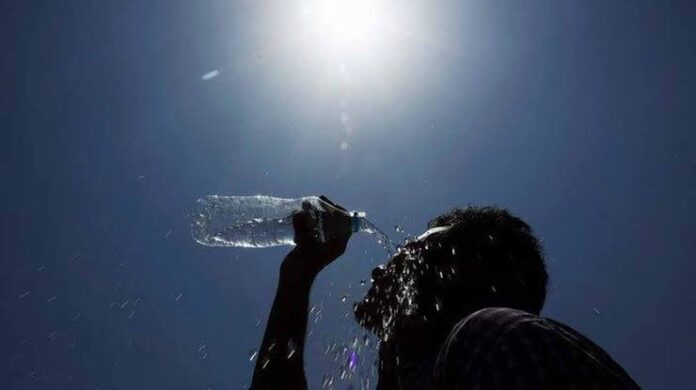Srinagar, Jun 10: A relentless heatwave has engulfed Jammu and Kashmir with the Meteorological Department issuing a severe heatwave alert for the next four days.
The department warns of persistently dry and hot weather conditions, particularly in the plains of Jammu, where temperatures are expected to touch an oppressive 46 to 47 degrees Celsius, and Kashmir, where the mercury could rise to 35 degrees Celsius.
This extreme weather pattern is attributed to a dominant high-pressure system over northwestern India, blocking moisture-laden winds and preventing any respite in the form of precipitation.
On Monday, several stations across J&K reported above-normal maximum temperatures, signalling the intensity of the ongoing heatwave.
In Kashmir, Srinagar recorded a scorching 33.3 degrees Celsius, which is 5.3 degrees Celsius above normal.
Qazigund saw 33.6 degrees Celsius, a staggering 6.8 degrees Celsius above normal.
Pahalgam, usually a cool retreat, hit 28.7 degrees Celsius, 4.8 degrees Celsius above normal.
Kupwara registered 32.5 degrees Celsius, 4.5 degrees Celsius above normal, while Kokernag and Gulmarg logged 30.8 degrees Celsius and 23 degrees Celsius, both exceeding the average by over 4 degrees Celsius.
In the Jammu division, the heat was even more intense with Jammu city sweltering at 44.3 degrees Celsius, 4.7 degrees Celsius above normal.
Katra was not far behind at 40.2 degrees Celsius, 4.2 degrees Celsius above normal.
Banihal recorded 32.8 degrees Celsius, 4.3 degrees Celsius above normal, Batote touched 33.6 degrees Celsius, 5.5 degrees Celsius above normal, and Bhaderwah experienced 33 degrees Celsius, 3.2 degrees Celsius above the seasonal average.
The sustained heat is expected to impact health, particularly of the elderly, children, and those with existing medical conditions.
Authorities are urging people to avoid outdoor activities during peak afternoon hours and to stay hydrated.
There is a very high risk of heatstroke and heat exhaustion in the region under such conditions, said a senior health official. We advise all citizens to take necessary precautions including wearing light clothing, using sunscreens, and drinking sufficient water.î
Farmers and those in the agriculture sector are also concerned.
Prolonged dry spells coupled with high heat can stress crops and reduce yields, especially in areas dependent on natural precipitation or shallow irrigation.
The administration has directed authorities to activate emergency services, ensure the availability of drinking water, and monitor the power supply amid rising electricity demand due to air-conditioning and fan usage.
There will be strict monitoring of essential services, especially in healthcare and water supply, said a spokesperson from the Disaster Management Authority.










